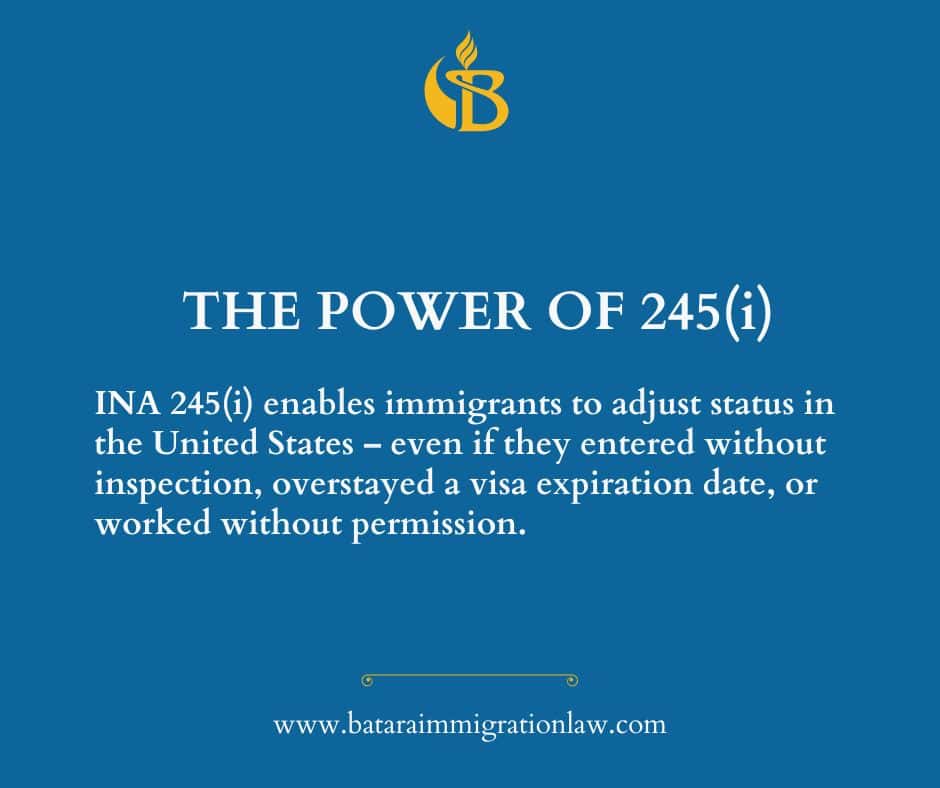
Many immigrants are unfamiliar with section 245(i) of the Immigration and Nationality Act. Despite that this area of law might be a saving grace for them, it goes ignored.
The primary reason for such lack of knowledge is that it applies to immigrants who had petitions filed on their behalf over 20 years ago.
In the attempt to shed some light on whom this section can help, the graphs below share four situations where INA 245(i) can possibly help you win a green card:
Example 1: Does Divorce Terminate 245(i) Eligibility For Former Spouses?
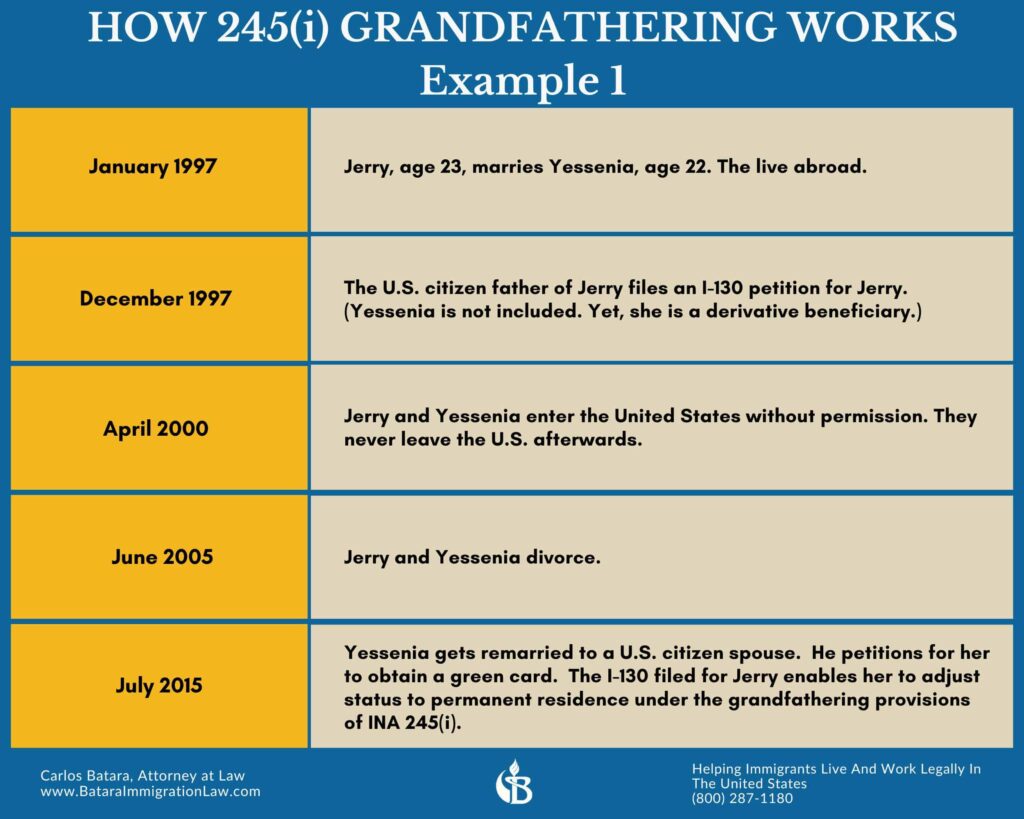
Example 1 is based on an I-130 petition filed by a U.S. citizen parent. His son is married and the spouse, although not named in the original I-130, is still considered a derivative beneficiary.
As a result, despite the couple’s divorce several years, the divorce does not adversely affect the ability of the derivative beneficiary to seek adjustment of status under 245(i).
Example 2: Does 245(i) Work With I-130 Petitions Filed By Siblings?
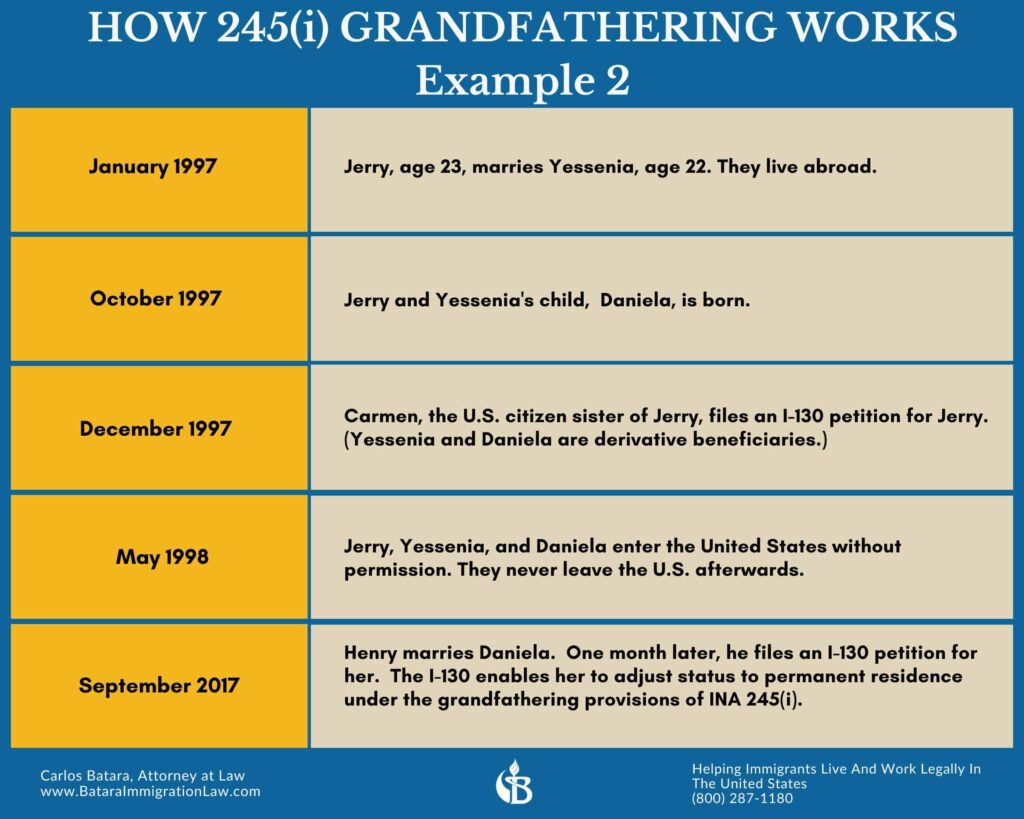
Example 2 is based on an I-130 petition filed by a U.S. citizen sibling. The U.S. petitioner files for her immigrant brother who is married and has a minor child. The immigrant brother’s wife and child are both derivative beneficiaries.
When the daughter gets married several years later to a U.S. citizen, she can qualify to adjust status in the United States based on the I-130 petition filed for her father by her aunt.
Example 3: Does 245(i) Work With I-130 Petitions Filed By Adult Children?
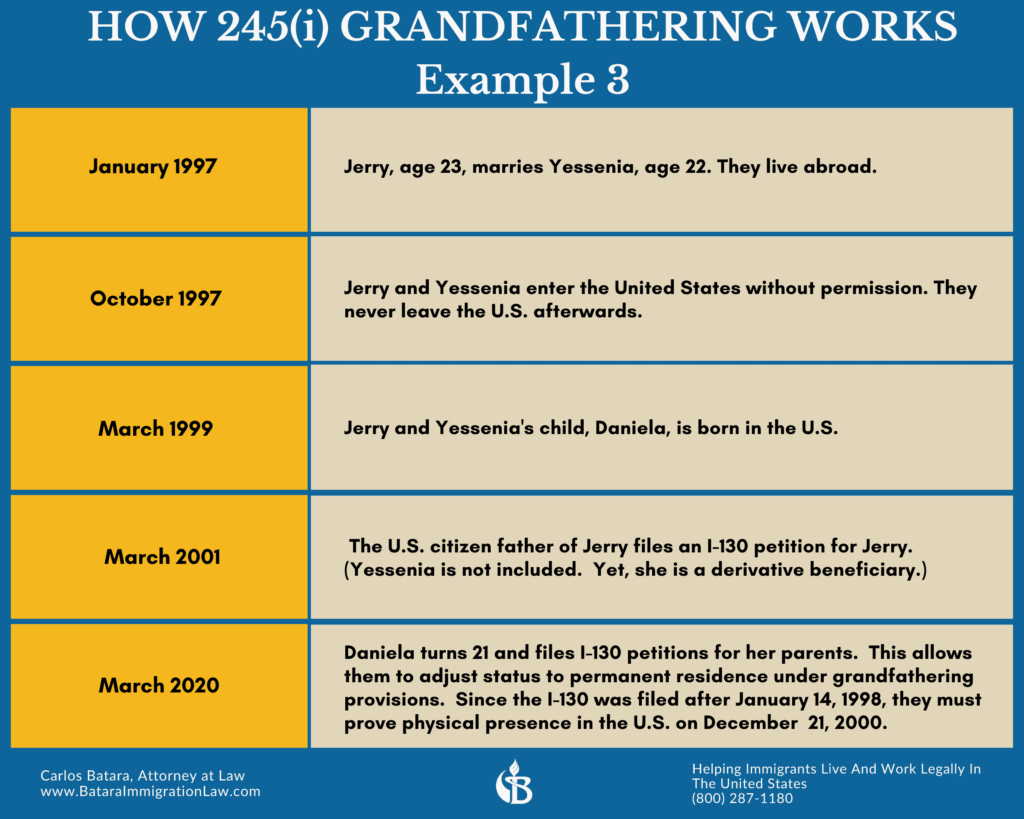
Example 3 is again based on an I-130 petition filed by a U.S. citizen parent. However, in this example, the immigrant son and his wife have a child in the United States after they enter the country without permission. (The wife is a derivative beneficiary.)
When their daughter turns 21, she is eligible to sponsor them for a green card. They are eligible to seek adjustment of status under INA 245(i).
Because the U.S. citizen parent files the I-130 after January 14, 1998, both parents are required to prove they were physically present in the U.S. on December 21, 2000.
Example 4: Does 245(i) Help
After-Acquired Spouses?
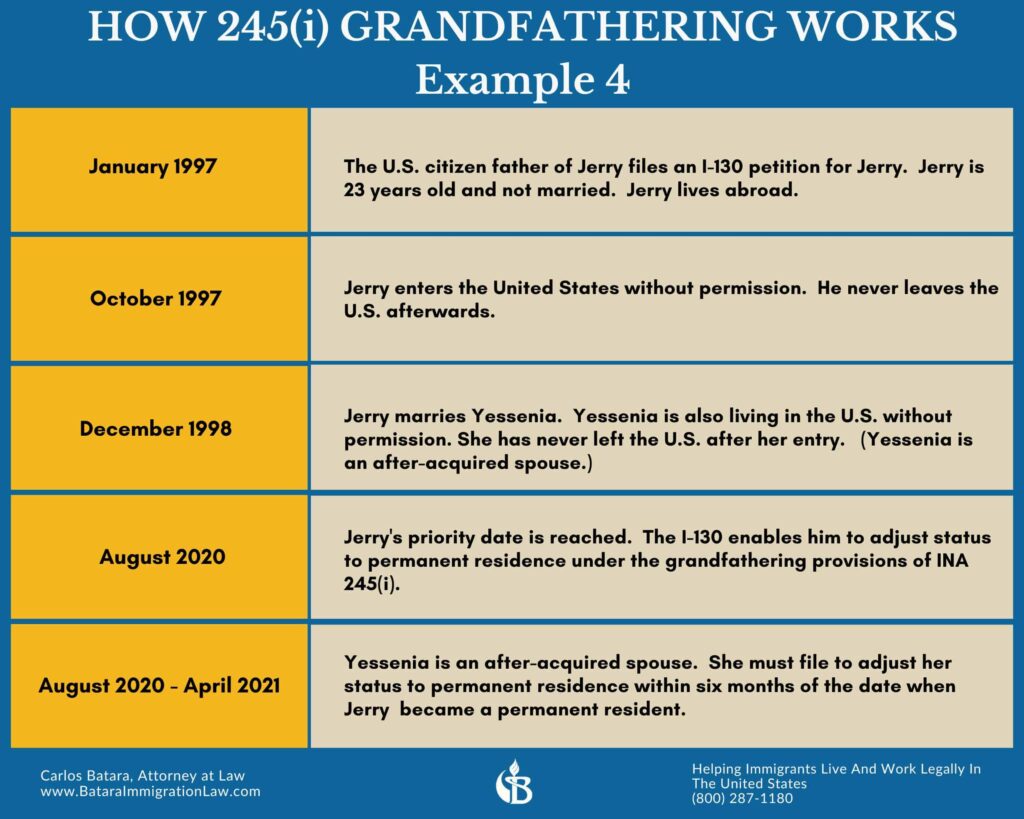
Example 4 revolves around the rules governing after-acquired family members.
For instance, an I-130 petition is filed on behalf of an immigrant son, then afterwards he gets married. His wife, also an immigrant who entered without permission, is considered an after-acquired spouse.
Since the marriage took place after the I-130, was filed, the wife does not have 245(i) grandfathering rights on their own.
To qualify for adjustment of status, she must file their permanent residence application within six months from the date her husband was granted a green card.
For more information about how old petitions, filed many years ago, can be used under grandfathering provisions to win a green card, see this article: Grandfathering: How To Win Adjustment Of Status Under INA 245(i)
Ready to take a serious and honest look at the strengths and weaknesses of your immigration case? Let’s get started with a personalized strategy and planning consultation . . .




